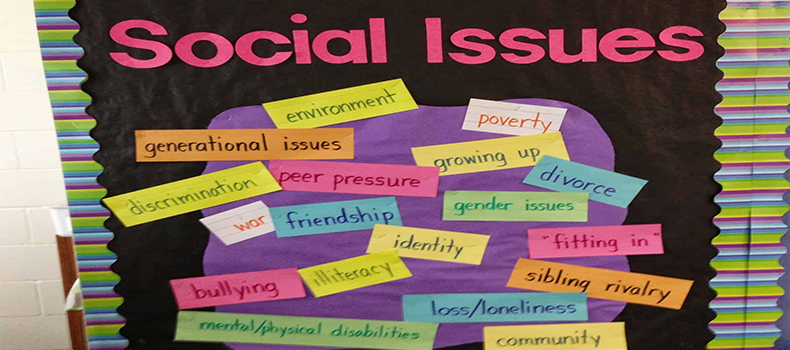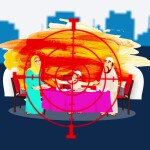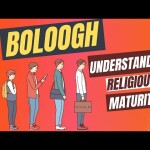Social issues and their solutions-1
Poverty
Poverty is one of the worldwide problems. According to Habitat for Humanity, one-quarter of the world's population lives in conditions that harm their health and safety.
If there is a God, then why some people are rich and some people are poor?
The answer is that God provides more than sufficient food for all and you cannot see any shortage of His sustenance across the globe. The sufficient sustenance is available even for a tiny creature . As He says:
“How many an animal there is that does not carry its own provision. Allah provides for it, as (He provides) for you. He is the All-hearing, the All-Knowing”. (Quran, Chapter-29, Verse-60)
He says: “ there is no animal on the earth, but that its sustenance leis with God, and He knows its [enduring] abode and its temporary place of lodging. Everything is in a manifest book” (Quran, Chapter11, Verse-6)
And He says:
“Man should have a look on his food, We pour down plenteous water[ from the sky], then split the earth, sowed the seeds in it and made the vines and vegetables and olive and date palms grow from it. We created densely-planted gardens and fresh fruits and pastures, as a sustenance for you and for your livestock”. (Quran, Chapter-80, Verses-24-31)
The poverty comes from lack of social justice in one hand and from indolence, laziness and weakness of some individuals in other hand. According to Qur’anic statement, the wealth in the society is like the blood in the body (59:7). As the blood must flow throughout the body, so the wealth must flow throughout the society. Communal property is a distinguishing mark of Islam, and therefore communal wealth "cannot be restricted to individuals, a wealth of which the Messenger of God enumerated three aspects, water, herbage, and fire." (Qutb, 1953, p. 109) One honest way of gaining money is through work. Therefore, Islam is against monopoly, usury, corruption, wastefulness, and dishonest commercial practices. Above all Islam stands against luxury-loving people. Luxury is considered as a social disease for both an individual as well as a society.
How to get rid of the poverty?
Imam Ali says: The day in which everything married with one another, “indolence” and “weakness” mingled with each other, and their child was called “poverty and indigence”
Everything is earned through effort and endeavours and this is the reality that Islam has taught us. Indolence, debility, weakness and escaping from hard work and difficult challenges are never compatible with the spirit of belief. They will produce nothing but poverty in all aspects, including economic, moral and spiritual poverty. The striving believers on the other hand shall be self-sufficient and contented in all respects.
Islam strongly, demands from rich people to give the rights of poor people. In fact, there is no religion better than Islam which addresses to rich people for charity, generosity, fairness and being helpful towards poor people and at the same time commands poor people to put all necessity efforts to regain their sustenance. We therefore, believe that if rich and poor both follow the Islamic laws, there will be no significant gap between poor and rich.
Social issues and their solutions-2
Lack of Education- Illiteracy
The Qur'an says.
"Are those who have knowledge equal to those who do not have knowledge?!”(39:9).
The Prophet of Islam (peace be upon him and his progeny) has also emphasized the importance of seeking knowledge in different ways:
(a) There is no time limit: "Seek knowledge from the cradle to the grave."
(b) The distance and place are not considered: "Seek knowledge even if it is far as China."
(c) There is no difference of Gender: "Seeking of knowledge is a duty of every Muslim male and female"
(d) There is no particular Source needed: "Wisdom is the lost property of the believer, he should take it even if finds it in the mouth of a “disbeliever."
The Prophet did not only preach about importance of knowledge, he also gave examples of promoting knowledge. In the very first battle between the Muslims and unbelievers or Makkah, known as the war of Badr, the Muslims gain victory and caught seventy Disbelievers as prisoners of war. One of the criteria of releasing the POWs devised by the Prophet was that those who were literate among the prisoners could go free if they teach ten Muslim children how to read and write.
What Type of Knowledge?
Knowledge in Islam is normally divided into two broad categories: there is a famous saying: knowledge is of two kinds: the knowledge concerning religions and the knowledge concerning [human and physical] bodies." What has been mentioned above on the importance of knowledge refers to both, the religious as well as the secular knowledge.
The Quran has specifically talked about science also:
"In the creation of the heavens and the earth the alternation of the night and the day, in the ships that sail in the sea with their load…. in the rain which Allah sends down from the sky and thus revives the earth after its death; and then He spread in all kinds of animals; in the changing of the winds: in the clouds which have been justify suspending between the heaven and the earth -in all these are clear signs for the people who understand” (2:164)
"We shall show them Our signs in the horizons and in themselves." (41:53)
Why the some Muslims are backwards?
The backwardness of the Muslims in last few centuries, as far as education is concerned, is because of the following:
- The Muslims lost leadership in the field of physical science and technology because of arrogance which led to stagnation.
- The invasion by the Mongols, who were barbarians and did not appreciate the value of knowledge: they burned down the most prestigious libraries in Baghdad.
- In the nineteenth century, when the Muslims attempted to revive the process of education and knowledge in their societies, they naively adapted the western secular system which had completely separated the religious sciences from the secular sciences. (Example of the Turkish reformers of the last century and also Egyptian intellectuals of the early twentieth century, especially Dr. Taha Husayn in his Mustaqbilu ‘th-Thaqafah fi Misr. We can also mention Sir Syed Ahmad Khan of India.) The Muslim world is still suffering from the dissection between the religious and secular sciences.
What is the solution?
The best solution is to gain both type of knowledge. Religious knowledge to be connected with our Lord and safe from all type of evils and the secular knowledge to be successful in our worldly affairs.
Social issues and their solutions-3
Climate Change
A warmer, changing climate is a threat to the entire world. Climate change affects the entire world population, and the Union of Concerned Scientists calls this social issue "one of the most devastating problems humanity has ever faced."
The 800 million people already living in extreme poverty will be impacted most severely. Around the world, people are already noticing warmer winters, more severe storms and rainfall events, and more frequent wildfires. These issues already put stress on governments and systems in many countries.
Islam teaches its followers to take care of the earth. Muslims believe that humans should act as guardians, or khalifah, of the planet, and that they will be held accountable by God for their actions. This concept of stewardship is a powerful one, and was used in the Islamic Declaration on Climate Change to propel change in environmental policy in Muslim countries.
In fact, Muslims need to look no further than the Quran for guidance, where there are approximately 200 verses concerning the environment. Muslims are taught that “greater indeed than the creation of man is the creation of the heavens and the earth”. The reality is that nothing could be more Islamic than protecting God’s most precious creation: the earth.
It is this approach that can reach the hearts and minds of the 1.8 billion Muslims around the world, and it must be integrated with, rather than neglected by, the climate movement.
The Prophet Muhammad (pbuh) also demonstrated kindness, care and general good principles for the treatment of animals, which form a benchmark for Muslims. He outlawed killing animals for sport, told people not to overload their camels and donkeys, commanded that slaughtering an animal for food be done with kindness and consideration for the animal’s feelings and respect for Allah who gave it life, he even allowed his camel to choose the place where he built his first mosque in the city of Medina.
A 2013 study in Indonesia showed that including environmentalist messages in Islamic sermons led to increased public awareness and concern for the environment. In 2014, Indonesia issued a fatwa (or Islamic legal opinion) to require the country’s Muslims to protect endangered species.
There are also organisations dedicated to using religion to pass on the message of conservation, such as the Alliance for Religions and Conservation (ARC). One of its most successful projects used Islamic scholars to convince Tanzanian fishermen that dynamite, dragnet and spear fishing goes against the Quran – and they listened.
This case also tells us that remote, top-down moralising is unlikely to be effective. The fishermen had previously resisted bans from the government, but were persuaded once they were told that they were acting un-Islamically. One fisherman said: “This side of conservation isn’t from the mzungu [“white man” in Swahili], it’s from the Quran.”
Clearly, we need to speak the language of those whose behaviour we are seeking to change, particularly if that language is naturally averse to unsustainable policies.
Some Muslim thought leaders are aware of this and are eager to develop a “homegrown” environmental movement to emerge as thought leaders in their own right. For example, the Dhaka Forum this month ran a panel on post-COVID-19 environmental issues with the majority of speakers coming from the Muslim world.
Muslim countries have a head start in the climate race. They have a framework and a belief system which mandates protection of the earth and its natural resources. As Seyyed Hossein Nasr, a prominent proponent of the religion and environmentalism movement, argues, the desacralisation of the West has resulted in an ideology that humans have dominion over the earth, rather than stewardship of it, which is the Islamic view.
Muslims must become guardians of the earth once more, for the sake of their environments and for the sake of God. By prof. Ibrahim Ozdemir
Social issues and their solutions-4
Civil Rights
Civil rights, or the rights of citizens in a country to have fair treatment socially and politically, is another one of the most significant social issues.
Racial Discrimination
The racial discrimination is also a major problem across the globe. It is been reported that just
in America around 90% of African Americans are the victims of it.
Gender Inequality
A western society needs to address this issue sincerely, as women have still less rights than men. The companies use women as a tool for the marketing of their products.
Health Care
When people are sick or hurt, they need access to medical care to get better. According to the Centers for Disease Control and Prevention (CDC), almost one in 20 U.S. citizens do not obtain needed medical care because of the cost. Worldwide, 97 million people become impoverished by seeking needed medical care, as reported by the World Health Organization (WHO).
Killing innocents
Poor Leadership
Many of the social problems in society are connected in subtle ways, but all social problems are connected to the leadership of countries, corporations, and other groups. An ongoing Gallup poll asks Americans to rate the most important problems and social issues facing the country. By far, the most significant issue was poor leadership; 28% of respondents list it as the number one problem.
Hopelessness
Depression
Lack of Faith
Trade of arms
Drugs using and dealing
Fixing Common Social Issues
Raising Awareness
Discussing social issues can be contentious, but it's also an important part of making progress on these problems facing society. Community and classroom activities involving social issues can help raise awareness for these topics. Writing about social issues can also help expand people's understanding of these important challenges.











